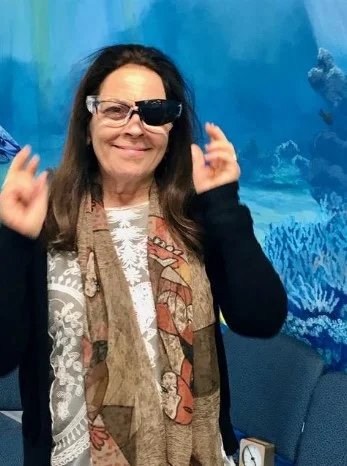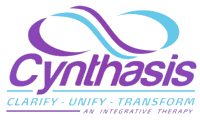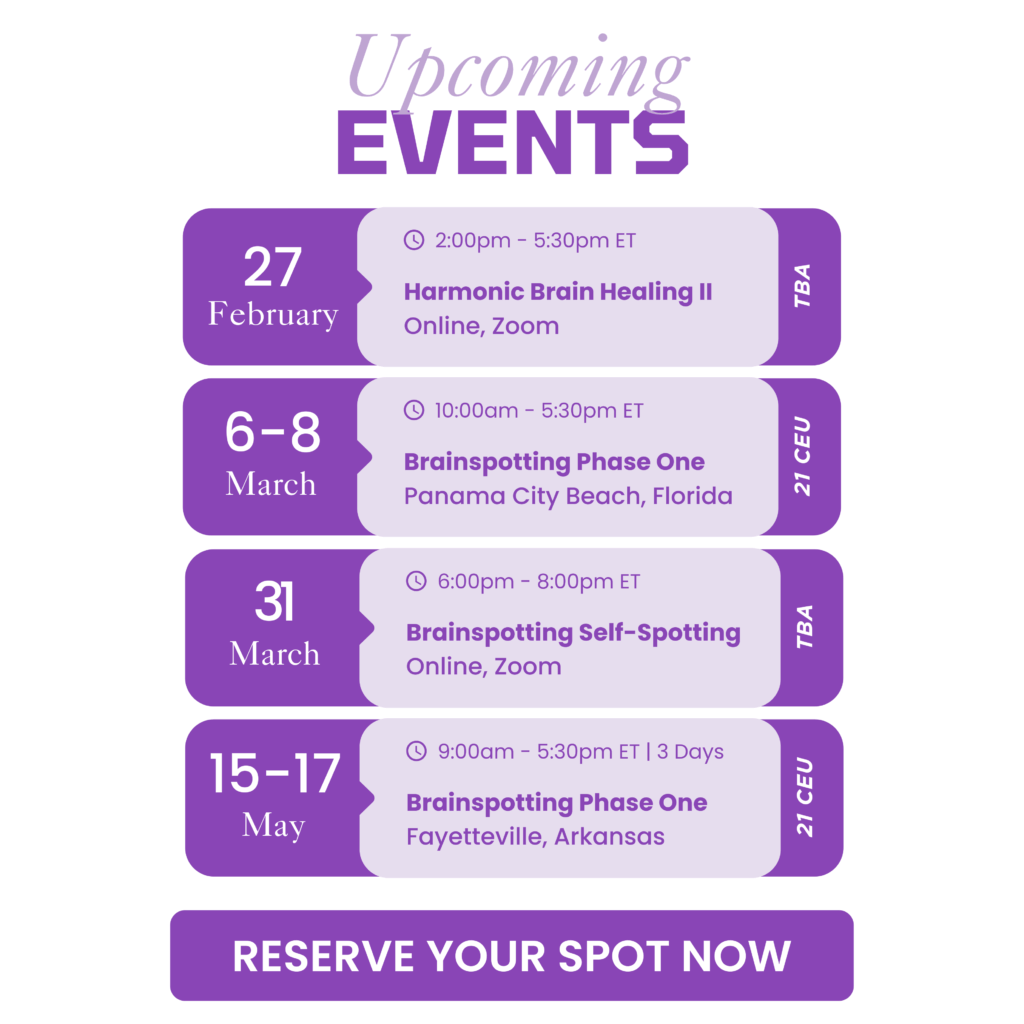Brainspotting Phase Two Overview and Details
The Brainspotting Phase Two training advances the foundational skills acquired in Brainspotting Phase One. This intermediate-level course deepens participants’ expertise through enhanced resourcing techniques to regulate the nervous system.The curriculum supports working with very complex PTSD, facilitated through extensive interactive lectures, Q&A sessions, live demonstrations, and practicums. This approach ensures participants are well-prepared to implement these advanced techniques in their practices.
Training Details
Duration: Three-Day Training
Certificates: Participants will receive a certificate upon completion.
Continuing Education Details: Offered specific to each training. CE certificate is a separate certificate.
Who Should Attend? This advanced training is specifically designed for those who have completed Brainspotting Phase One. It is ideal for licensed professionals such as counselors, psychologists, social workers, addiction counselors, and psychoanalysts who are seeking to deepen their understanding and application of Brainspotting in clinical settings.

Registration Details
Early Registration : $745 Standard Registration : $795 Late Registration : $845
Student or Repeat : $400 student rate-actively enrolled in a graduate program in a mental health-related field (psychology, social work, counseling, marriage and family therapy) (documentation required, name of supervisor and license working toward).
Cancellation & Refund Policy : Should you need to cancel, we offer a full refund if the cancellation is made up to 14 days before the event, minus a $75 administrative fee per registration. purchased.
This course sets the stage for advanced skills in Brainspotting, paving the way for further professional development in specialized therapeutic methods.
You Will Learn
The Brainspotting Phase Two training delves deeper into the intricacies and nuances of this powerful therapeutic modality. This advanced course builds upon the foundational skills learned in Phase One, offering a comprehensive exploration of advanced techniques and complex case applications.
Review Brainspotting Phase One
Review key principles and theory from Brainspotting Phase One.
One-Eye Brainspotting
Including the use of One-Eye goggles to focus on processing trauma.
3-Dimensional Brainspotting (Z-Axis) and Vergence
Techniques to activate the vagus nerve through Convergence Therapy, and to access deeper layers of trauma.
Outside/Inside Window
Reflexive responses and client sense of highest activation are used together to find Brainspots.
Rolling Brainspotting
Involves slow eye tracking to uncover deep-seated emotional responses.
Advanced Resource Spotting
Day three intensifies focus on combining One-Eye and Z-Axis Brainspotting to manage very complex PTSD and clients outside of the Window of Tolerance.
In addition, participants will:
- Review the standards of care and professional practice for Brainspotting practitioners.
- Research that supports the primary assumptions of Brainspotting
- Explore the challenges of research and evidence-based treatment for conditions such as Complex PTSD
This course sets the stage for advanced skills in Brainspotting, paving the way for further professional development in specialized therapeutic methods.
Learning Objectives
By the end of this training, participants will be able to:
- Summarize the standards of care and professional practice of the International Brainspotting Association.
- Describe the hypothesized neurological underpinnings of how Brainspotting works.
- Summarize the research that supports the hypothesized way in which eye positions activate and access midbrain activity.
- Explain the uncertainty principle as it relates to Brainspotting.
- Describe the concepts of simultaneous neurobiological and relational attunement.
- Explain the importance of client-therapist attunement during Brainspotting.
- Explain how the treatment frame is set and held by the therapist.
- Explain the role of focused mindfulness in Brainspotting.
- Discuss the similarities and differences between the activation and resource models of Brainspotting.
- Explain the concept of limbic countertransference.
- Demonstrate a basic mastery of the use of the outside window Brainspotting technique.
- Demonstrate a basic mastery of the use of the inside window Brainspotting technique
- Demonstrate a basic mastery of the use of the gaze spot Brainspotting technique.
- Demonstrate a basic mastery of the use of the resource model of the Brainspotting technique.
- Assess the appropriate Brainspotting techniques for the treatment of Post-traumatic stress disorder, including the Dissociative Subtype, and other trauma-related symptoms.
- Describe two challenges to assessing and providing evidence-based treatment to individuals with Complex PTSD.
This course sets the stage for advanced skills in Brainspotting, paving the way for further professional development in specialized therapeutic methods.
Training Schedule
- Registration Time: Begins at 8:30 AM on the first day.
- Daily Training Hours: From 9:00 AM to 5:30 PM.
Our Testimonials
Cynthia is a natural teacher and has a very approachable, calming presence. Even when she’s speaking to a very large crowd, I feel like she’s speaking straight to my heart. If you have a chance to hear her speak, do yourself a favor and seize the opportunity to do so.
As a teacher, Cynthia brings a ...
-A.N.
Cynthia is a channel for transpersonal energy. Her work is about bringing the spiritual life into an embodied experience. She is a teacher, healer, counselor, and fellow traveler.
Cynthia is a clear communicator. She combines research and her knowledge from her clinical work in how the body and brai...
M.S.
Cynthia is a channel for transpersonal energy. Her work is about bringing the spiritual life into an embodied experience. She is a teacher, healer, counselor, and fellow traveler.
Cynthia is a clear communicator. She combines research and her knowledge from her clinical work in how the body and brai...
-M.S.
Before participating in the Phase 1 Brainspotting Training with Cynthia, I was a little skeptical about how effective this therapy could be, despite the prompting by several colleagues to give it a try. After 3 days of intense training with a skilled and compassionate instructor/therapist like Cynth...
-K.C.
I came into this class a bit skeptical but I had heard great things about it. As we went along and as we practiced and watched REAL demos (not “acting”), it really just started making sense to me. And the instructors’ passion for BSP was contagious. Once the training was over I felt comfortable enough ...
-T.S.
Brainspotting is an incredibly powerful yet gentle technique allowing client’s to take control of their therapy experience. I am excited to include it in my trauma resolution toolbox and I was able to start using it the day after training with tremendous results. This is exactly what I was looking fo...
-A.C.
The passion, organization and knowledge of all trainers and consultants involved in the training is such an asset.
-K.S.
This training, and Cynthia, in particular, was amazingly helpful, well-structured, and executed to perfection. I highly recommend this training.
-N.C.
This training is highly informative and eye-opening. Cynthia and the team of consultants did a phenomenal job in sharing their expertise, demonstrating the use of this profoundly healing technique and preparing us clinicians to bring Brainspotting to our practice. The three-day training was transfor...
-J.M.
The training not only prepared me to practice brainspotting with confidence but was also truly a warm and enjoyable experience.
-J.C.
The instructors and assistants were highly skilled and possessed a significant wealth of knowledge.
Excellent training! Highly recommended!!!!
-O.Q.
Cynthia and Chris are incredibly warm, compassionate, and, of course, incredibly knowledgeable and skilled clinicians. With their help, along with the wonderful assistants, I feel very comfortable in beginning my Brainspotting journey and truly feel supported, which will help me be more attuned and ...
-R.V.
Cynthia and Christine are tremendously skilled and attuned trainers. I feel confident in my ability to take this to my clients right away and would recommend their training to anyone without hesitation. I cannot wait for Phase Two!
-T.P.
“Cynthia is a channel for transpersonal energy. Her work is about bringing the spiritual life into an embodied experience… (full review continues as above).”
-M.S
“Before participating in the Phase 1 Brainspotting Training with Cynthia, I was a little skeptical about how effective this therapy could be… (full review continues as above).”
-K.C.
“I came into this class a bit skeptical but I had heard great things about it… (full review continues as above).”
-T.S.
“Brainspotting is an incredibly powerful yet gentle technique allowing client’s to take control of their therapy experience… (full review continues as above).”
-A.C.
“Cynthia and Christine are tremendously skilled and attuned trainers. I feel confident in my ability to take this to my clients right away and would recommend their training to anyone without hesitation. I cannot wait for phase 2!”
-H.H.
“Cynthia and Christine were very knowledgeable and this training was well worth my time and money spent on it. You can begin using the skills taught the next day you return to work. It is invaluable!! Thank you so much.”
-C.M.
“This training was so much more than just learning how to use a technique! This training opened my eyes and heart to another way of being with my clients to bring further healing and renewal to their lives.”
-K.H.
“The Phase 1 training with Cynthia and Christine exceeded my expectations, it was wonderful to be taught by two clinicians who clearly ‘walked the talk’ and modeled the concepts they were teaching. This training has changed the way I work as a therapist in ways that all my clients are already benefi...
-D.E.
Our Testimonials
- D.M. and A.G.
The demonstrations and opportunities for practice and personal growth/healing not only exceeded expectations and hopes but were nothing short of divine gifts. I came away lighter, more alive, and with a sense of anticipation and excitement at being able to offer this exquisite blend of art and science to my clients. Thank you!
- H.M.
I really appreciate what a warm and compassionate group of people Cynthia and Chris put together to facilitate our learning. The space created felt like being with long-time friends and colleagues on a mission to heal the world. The passion and experience they bring set the tone for the whole group and I felt so supported and safe.
- K.J.
Not only was this training beneficial to me as a therapist, I also received such healing sessions from my practicum experiences. Thank you!
- T.W.
Cynthia and Chris are both incredible presenters and very clearly skilled and empathetic clinicians – exactly how I want my practice to be. I would not train with anyone else! Thank you for everything. I was extremely impressed with this training and can’t wait to put it into practice.
- B.P.
I am impressed with the focused instruction and training provided at both Phase One and Phase Two. At each session, I came away with good foundations, practice knowledge and experience so I was able to use BSP immediately.
- H.M.
Phase 2 with Christine and Cynthia was an incredible experience. I had taken Phase 1 with them, so I knew I would be engaged in a very professional and well-executed training. What I didn’t expect was how much more I got out of Phase 2 and how my love for Brainspotting would be ignited in so many new ways.
- A.S.
Phase 2 has really helped me build my confidence in my Brainspotting skills. With the new set-ups at my disposal, I feel like I can use Brainspotting with many clients who present a variety of concerns. I love how much knowledge and passion Cynthia and Christine have and I can’t imagine taking a training with anyone else!
- K.R.
Brainspotting Phase 2 training with Cynthia and Christine was a fantastic experience. I walked away from training with a renewed sense of the great privilege it is to sit with clients and a confidence in Brainspotting as a powerful tool for healing.
- H.M.
I enjoy the format Cynthia and Chris use to ensure that we truly grasp the concepts being taught and the gentle redirection if we are not quite getting it. After completing the training, I feel prepared and confident about trying new setups with my clients. I hope to take many more trainings with C & C!
- N.S.
BSP Phase Two was incredible! The ability to make space and facilitate client-empowered healing is almost miraculous. Cynthia and Chris were an awesome duo offering compassion and direction in the techniques also!
- H.M.
Phase 2 with Christine and Cynthia was an incredible experience. I had taken Phase 1 with them, so I knew I would be engaged in a very professional and well-executed training. What I didn’t expect was how much more I got out of Phase 2 and how my love for Brainspotting would be ignited in so many new ways.
- K.J.
Phase 2 added excellent resourcing to my setups, and I feel completely prepared to bring these new strategies back to my complex trauma clients. I highly recommend Chris and Cynthia’s trainings since they are so thorough, provide skilled demos, and ensure that everyone feels confident in using the new setups.
- T.W.
I loved my experience in Phase Two with Cynthia and Chris! They were warm and encouraging. I really felt supported and could sense their passion for the material. Cynthia and Christine were my trainers for Phase One and I knew I needed to work with them again in Phase Two!
- H.C.
Cynthia and Christine make an incredible team. The training was highly experiential, and life changing–personally and professionally. Highly recommend and I am looking forward to continuing this journey with the skills I have gained.
- D.E.
My practice has changed in ways that all my clients are already benefitting from, whether it is through an actual Brainspotting session or just a deeper level of presence and trust in their system. I am now finding ways to incorporate Brainspotting into my practice. I feel very aligned to it both as a client and as a therapist
The Brainspotting Phase Two training with Christine and Cynthia was an incredible experience. I had taken Phase One with them already, so I knew that I was going to be engaged in a very professional and well-executed training. What I didn’t expect was how much more I got out of the Phase Two training, and how my love for Brainspotting would be ignited in so many new ways. I really appreciate what a warm and compassionate group of people C&C brought together to facilitate our learning. The space that C&C creates is hard to describe, but it feels like being with long-time friends and colleagues that are on a mission to heal the world. I felt so supported and safe. I hope to take many more trainings with Christine and Cynthia.
-HM
The Brainspotting Phase Two training with Christine and Cynthia was an incredible experience. I had taken Phase One with them already, so I knew that I was going to be engaged in a very professional and well-executed training. What I didn’t expect was how much more I got out of the Phase Two training, and how my love for Brainspotting would be ignited in so many new ways. I really appreciate what a warm and compassionate group of people C&C brought together to facilitate our learning. The space that C&C creates is hard to describe, but it feels like being with long-time friends and colleagues that are on a mission to heal the world. I felt so supported and safe. I hope to take many more trainings with Christine and Cynthia.
-H.M.
Brainspotting Phase Two had added excellent resourcing to my setup protocol, and I feel completely prepared to bring these new strategies back to my clients to support them in navigating complex trauma. I highly recommend Chris and Cynthia’s trainings since they are so thorough, provide skilled demos, and ensure that everyone feels confident in using the new setups. Not only was this training beneficial to me as a therapist, I also received such healing sessions from my practicum experiences. Thank you!
-K.J.
I loved my experience in Phase Two with Cynthia and Chris! They were warm and encouraging. I really felt supported and could sense their passion for the material.
Cynthia and Christine were my trainers for Phase One and I knew I needed to work with them again in Phase Two! They’re both incredible presenters and very clearly skilled and empathetic clinicians – exactly how I want my practice to be. I would not train with anyone else!
Thank you for everything I was extremely impressed with this workshop and can’t wait to put it into practice
-T.W.
Cynthia and Christine make an incredible team. The training was highly experiential, and life changing–personally and professionally. Highly recommend and I am looking forward to continuing this journey with the skills I have gained.
-H.C.
“I am impressed with the focused instruction and training provided at both Phase One and Phase Two. At each session, I came away with good foundations, practice knowledge and experience so that I was able to use BSP immediately.”
-B.P.
“The BSP Phase 2 training with Christine and Cynthia was an incredible experience. I had taken Phase 1 with them already, so I knew that I was going to be engaged in a very professional and well-executed training. What I didn’t expect was how much more I got out of the Phase 2 training and how my love for Brainspotting would be ignited in so many new ways. I really appreciate what a warm and compassionate group of people C & C brought together to facilitate our learning. The space that C & C create is hard to describe, but it feels like being with long-time friends and colleagues that are on a mission to heal the world. The passion and experience that C & C bring to the trainings set the tone for the whole group and I felt so supported and safe. I enjoy the format they use to ensure that we truly grasp the concepts being taught and the gentle redirection if we are not quite getting it. After completing the training I feel prepared and confident about trying new setups with my clients. I hope to take many more trainings with C & C!”
-H.M.
“Phase 2 has really helped me build my confidence in my Brainspotting skills. Now that I have all of the new set-ups at my disposal, I feel like I can use Brainspotting with all kinds of clients who present with all kinds of concerns. I love how much knowledge and passion Cynthia and Christine have about the topic and I can’t imagine taking a training with anyone else!”
-A.S.
“Brainspotting Phase 2 training with Cynthia and Christine was a fantastic experience. I walked away from training with a renewed sense of the great privilege it is to sit with clients and a confidence in Brainspotting as a powerful tool for healing.”
-K.R.
“BSP Phase II was incredible! The ability to make space and facilitate client-empowered healing is almost miraculous. Having the opportunity to witness and experience the brain connecting with the body for processing allows for an individual’s continuous healing and truly epitomizes “trusting the process”! Cynthia and Christina were an awesome duo offering compassion and direction in the techniques also!”
-N.S.

Have Questions About Brainspotting Phase Two Training?
If you have any questions about the Brainspotting Phase Two Training or need more information, please fill out the form below or contact us at info@cynthasis.com. Our team at Cynthasis is dedicated to assisting you and will get back to you promptly. We are here to support your journey towards personal and professional growth. Don’t hesitate to reach out—we look forward to connecting with you!
Contact-2026
Redesign of current contact form with Gravity Forms


